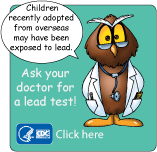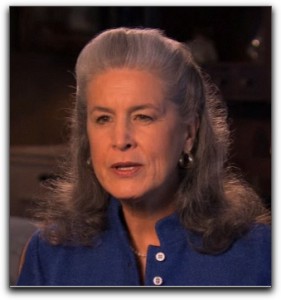Post-Arrival Resources
Once their child arrives home, most parents are greatly relieved that their adoption process is over and their life as a new family can finally begin. This is indeed a time to celebrate. But very soon, the parents need to attend to issues like a Social Security card, proof of citizenship, finalization, and maybe readoption.
See our Welcome Home page for information on obtaining a Social Security card and proof of U.S. citizenship, post-adoption and post-placement reports, and adoption tax credits.
See the Readoption page for information on, well, readoption.
Thinking of taking a trip back to Russia with your adopted child for a visit? Then see Visiting Russian with Your Adopted Russian Child for important information on travel as a dual citizen of Russia and the US.
Please also take a few minutes to complete our online Client Evaluation form. You can complete and submit it online.
Parent Training
Post-arrival parent training is not required by IFS (except in India cases where an IFS social worker may require additional parent training prior to finalization of the adoption). However, IFS urges adoptive parents to continue their learning as parents. The resources below include online training and books authored by professionals.
Consult with your home study agency about the most appropriate resources for your family and situation.
 The Connected Child
The Connected Child
From the Institute of Child Development, Texas Christian University
“Truly groundbreaking work on helping youngsters overcome behavioral problems, learning difficulties and mental illness resulting from early trauma and deprivation. The Connected Child is the first book to share Drs Purvis and Cross’ highly nurturing yet disciplined techniques so that parents can use them at home with their own children. This book is absolutely essential to foster and adoptive parents, care givers, and educators.
“The Connected Child takes a multi-dimensional approach based on the latest research, covering a spectrum of strategies, including attachment exercises, behavioral retraining, nurturing touch, sensory integration and nutritional therapy, to help parents and care givers to help heal the child’s invisible wounds” (from www.theconnectedchild.com).
Disturbing Behaviors
“Disturbing behaviors,” says Purvis, “like tantrums, hiding, hyperactivity, or aggressiveness, are often triggered by a child’s deep primal fear. You can take an important step toward eliminating tantrums and misbehaviors – and enabling learning and positive family relationships – by providing an atmosphere where children feel and experience safety for themselves.” Dr. Purvis talks about disturbing behaviors, fear and safety in Chapter Four of her book, The Connnected Child.
And Chapter Four, “Disarming the Fear Response with Felt Safety,” is available free for download. It gives a simple explanation of your child’s fear and practical ways to help them feel safe and unafraid.
Children from Hard Places
If you have recently adopted or you are considering adopting a child from an orphanage abroad or some other environment that could be considered a “hard place” for a child, Dr. Karyn Purvis, author of The Connected Child (see above) and Director of The Institute of Child Development at Texas Christian University, offers “Seven Insights” and “Seven Gifts” for parents and caregivers to help your child overcome the effects of trauma, neglect or abuse and to aid in your child’s journey of healing. These brief videos are made available by TCU. A full DVD set is also available.
She also has several posts, including “10 Questions Adoptive Parents Ask,” at Empowered to Connect web site.
Parenting the Hurt Child
 Parenting the Hurt Child
Parenting the Hurt Child
From Booklist
“In this sequel to their Adopting the Hurt Child (1998), [Gregory] Keck and [Regina] Kupecky explore how parents can help adopted or foster children who have suffered neglect or abuse. They begin by outlining changes in adoption and fostering procedures in recent years and use case studies to document the friction and disruption introduced into a household when a hurt, adopted child is brought into the family. The authors examine attachment disorders and control issues as well as parenting techniques that work (praise, consistency, flexibility, anger management) and those that don’t work (punishment, withholding parental love, grounding, time-outs, deprivation). They highlight the symptoms of abuse and options for therapy. Foster or adoptive parents need to claim the role of parent in the child’s life, the authors advise, suggesting ways to deal with teachers and other authority figures in the child’s life. The book includes a variety of resources on, among other topics, finance, therapy for siblings and parents, cultural differences, and marriage counseling.” Vanessa Bush
Copyright © American Library Association. All rights reserved
For more information, see the Attachment and Bonding Center of Ohio.
Respectful & Effective Parenting
Respectful & Effective Parenting, Ages 6-12 offered by Lifematters.com
Parenting Your Children
Parenting Young Children, Ages 3-6 offered by Lifematters.com
Parenting Teenagers
Parenting Teenagers offered by Lifematters.com
The Life Matters courses above introduce the concept that children misbehave when they feel thwarted in their need to belong and in their need for love and attention. Using this approach, you can develop a reliable, parenting style which uses logical and natural consequences, not punishment. Based on the premise that children naturally want to learn and cooperate this class is applicable for children of all ages. Eight week, self-paced online class with access to a personal coach.
Lead Alert
 LEAD ALERT: The U.S. Centers for Disease Control and Prevention has recently updated their website for adoptive parents. They write, “Concern exists about children adopted from overseas who may have been exposed to lead before they came to the United States. Recently in the United States, a small number of internationally adopted children have been found to have high levels of lead in their bodies. As a group, foreign-born adopted children tend to have higher levels of lead in their blood than children born in the United States (3). Children can be exposed to lead in different ways in various in countries (1, 2, 3).”
LEAD ALERT: The U.S. Centers for Disease Control and Prevention has recently updated their website for adoptive parents. They write, “Concern exists about children adopted from overseas who may have been exposed to lead before they came to the United States. Recently in the United States, a small number of internationally adopted children have been found to have high levels of lead in their bodies. As a group, foreign-born adopted children tend to have higher levels of lead in their blood than children born in the United States (3). Children can be exposed to lead in different ways in various in countries (1, 2, 3).”
For more information about testing your child for possible lead exposure, please see the CDC web page International Adoption and the Prevention of Lead Poisoning.





 Your donation to International Family Services can help change a child’s life forever.
Your donation to International Family Services can help change a child’s life forever. 